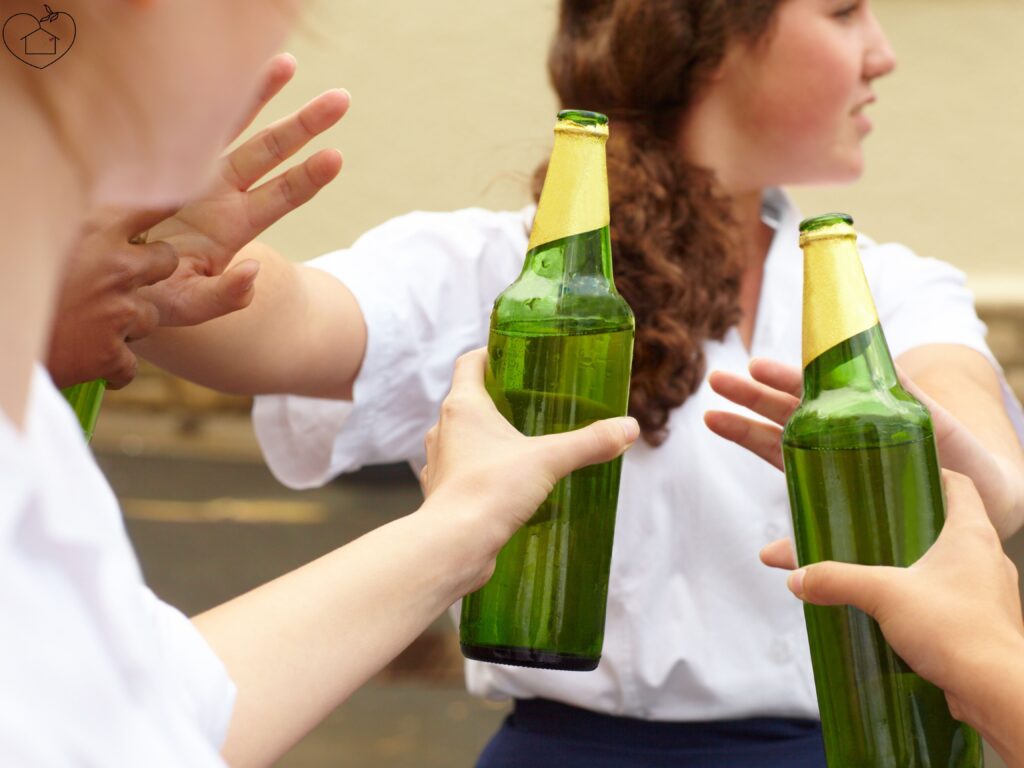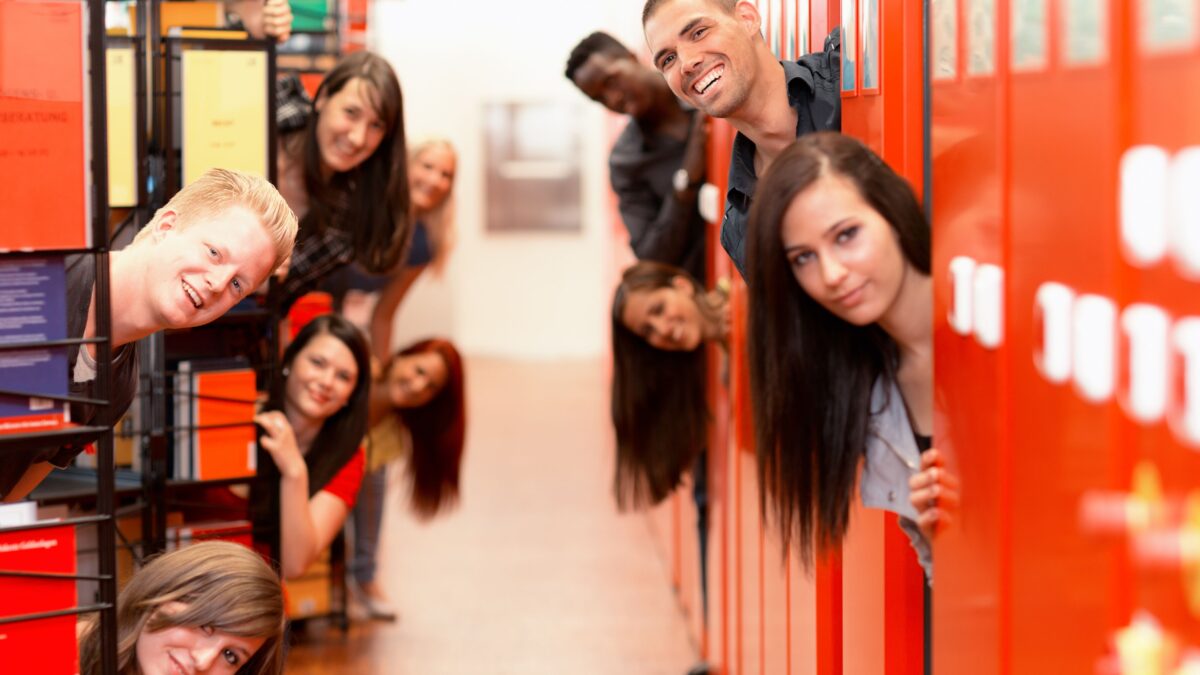Peer pressure is a strong social influence that can affect people of all ages, but it’s especially impactful during adolescence and young adulthood. How can friends best counteract the negative influence of peer pressure? By building self-confidence, encouraging supportive friendships, and developing healthy coping strategies, friends can help each other make positive choices and stay true to their values. This article examines the effects of peer pressure, psychological wisdom, and practical advice to help friends counteract negative influences. How can friends best counteract the negative influence of peer pressure?
Table of Contents
ToggleThe Impact of Peer Pressure
Peer pressure occurs when individuals feel compelled to conform to the behaviors, values, or expectations of a social group, even if those actions go against their personal beliefs. While peer pressure can sometimes lead to positive behaviors—such as studying harder or pursuing fitness goals—negative peer pressure often encourages risky or unhealthy behaviors, like substance abuse, bullying, or cheating.
From a psychological perspective, peer pressure taps into our innate desire for acceptance and belonging. According to social identity theory, people derive part of their self-worth from the groups they belong to. When faced with peer pressure, individuals may prioritize group acceptance over their own values, especially if their self-esteem is low or they lack a strong sense of identity. Adolescence is a particularly vulnerable time for peer pressure, as teens and young adults often seek approval from their friends as they examine their own identities.
Peer pressure is also linked to cognitive development. Psychologists explain that the prefrontal cortex, which helps with decision-making and self-control, is not fully developed until the mid-20s. This means younger people may struggle more with resisting peer pressure, as their ability to weigh consequences and regulate impulses is still maturing. How can friends best counteract the negative influence of peer pressure?
Counteract Negative Peer Pressure
1. Encourage Open Communication and Honesty Among Friends
Good friends should feel comfortable talking openly about peer pressure and the challenges they face. Encourage each other to share concerns or doubts without fear of judgment. By creating a supportive environment where everyone can be honest, friends can work together to address peer pressure.
Example: If one friend is feeling pressured to try something risky, they should feel safe talking about it with their friends. An open conversation can lead to advice, support, or even a plan for dealing with the pressure in a positive way.
2. Build Each Other’s Confidence to Make Independent Decisions
Friends can be a valuable source of encouragement, helping each other make choices based on personal values rather than social pressure. Remind each other of strengths and goals, reinforcing that true friends support each other’s choices.
Example: If a friend is unsure about declining an invitation to a party, help them feel confident in their decision by reminding them of their priorities, like studying for an exam. Knowing that their friends support their decision can strengthen their resolve.
3. Practice Saying “No” Together with Empathy and Respect
Resisting peer pressure often requires assertiveness skills. Friends can practice saying “no” in different ways to prepare for situations where they may feel pressured. Practicing these responses together makes it easier to resist when the moment arises.
Example: Try role-playing scenarios where each friend has to say “no” in a respectful but firm way. This can include different ways to decline an offer, such as using humor, suggesting alternative activities, or politely excusing oneself.

4. Identify Peer Pressure Triggers and Make a Plan to Manage Them
Friends can help each other recognize situations where they’re most likely to experience peer pressure, such as at parties, with certain people, or in competitive environments. By identifying these triggers, friends can create strategies to stay in control.
Example: If a group of friends feels pressured to drink at social events, they can agree to support each other by bringing non-alcoholic options or taking turns as the designated sober friend. Having a plan in place helps them feel prepared.
5. Encourage Each Other to Set Personal Boundaries and Respect Them
Setting boundaries is essential for resisting peer pressure. Friends should support each other’s limits and respect personal choices without pushing. Reinforcing boundaries helps everyone feel comfortable and confident in their decisions.
Example: If one friend doesn’t want to participate in a certain activity, the rest of the group should respect that choice. For example, if one friend chooses not to smoke, others should avoid making them feel left out or pressured to join.
6. Choose Positive Peer Activities Together that Reflect Shared Values
Instead of getting drawn into activities with negative influences, friends can find healthy ways to spend time together that align with their interests and values. This can include sports, creative projects, or volunteering, which reinforce positive peer influences.
Example: Plan fun, healthy group activities like movie nights, hiking, or cooking together. These shared experiences strengthen friendships without introducing negative influences.
7. Develop Exit Strategies for Uncomfortable Situations
Having a pre-planned exit strategy can make it easier to leave situations that feel pressured. Friends can help each other by providing “get-out” options, like an emergency text or a quick phone call.
Example: Friends can agree on a code word or message they can send each other if they want to leave a situation. This way, if someone feels uncomfortable, they can get support without having to explain.
8. Support Each Other in Building a Strong Sense of Self and Values
Friends can encourage each other to research personal interests, strengths, and values. By concentrating on individual growth, they’re less likely to be influenced by group pressures and more likely to stand up for what they believe in.
Example: If one friend is passionate about art or a sport, the others can show interest and encourage them to pursue it. Building a strong sense of self creates resilience against negative peer influences.
9. Remind Each Other that It’s Okay to Be Different and Stand Out
True friends value individuality. Remind each other that it’s okay to make different choices or to take a stand, even if it means not fitting in with the crowd. Supporting individuality makes it easier for everyone to resist peer pressure.
Example: If a friend feels embarrassed for not joining in with a popular activity, remind them that being true to themselves is more important. Celebrate their courage and reinforce that they’re respected for their choices.
10. Be a Role Model by Making Positive Choices and Leading by Example
Friends can inspire each other by setting a positive example. Show that it’s possible to make responsible choices and have fun without following every trend or pressure. Friends who lead by example make it easier for everyone to follow suit.
Example: If one friend chooses not to commit risky behavior, their actions may inspire others in the group to do the same. Modeling positive behavior builds a culture of respect and healthy choices within the group.
True friends support each other through challenges, including peer pressure. By communicating openly, setting boundaries, and encouraging each other to stay true to their values, friends can counteract negative influences and build a supportive community that empowers everyone. Recognizing the potency of friendship is a strong defense against the challenges of peer pressure.
Watch and Read!
- “The Teen’s Guide to Social Skills” by Kate Gladdin
- “Boundaries: When to Say Yes, How to Say No” by Dr. Henry Cloud and Dr. John Townsend
- “Stand Strong: You Can Overcome Bullying” by Nick Vujicic
- “The Perks of Being a Wallflower” (2012)
- “Mean Girls” (2004)
- “Wonder” (2017)
FAQs
Peer pressure can significantly impact self-esteem, especially if individuals feel they have to compromise their values to fit in. When friends support each other’s decisions, they help reinforce each other’s confidence and independence.
Positive peer pressure encourages healthy behaviors, like studying or exercising. Negative peer pressure, on the other hand, involves influences that push someone to risky or undesirable behavior.
Encourage open conversations, remind them of their strengths, and suggest alternative activities. Be supportive and affirm their right to make independent decisions.

